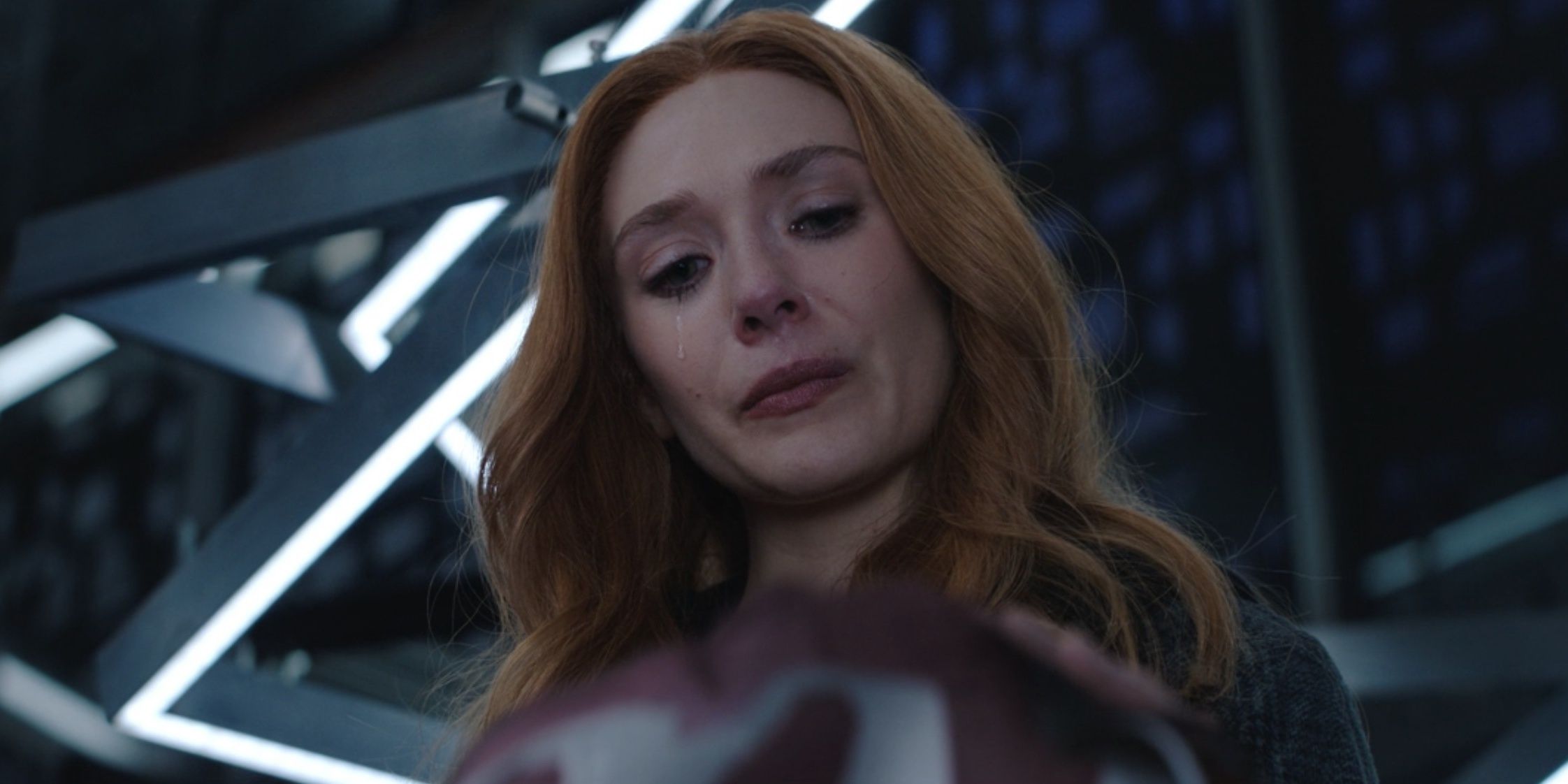
This article contains spoilers for WandaVision episode 8.
With only one episode left to go, WandaVision is quickly approaching its big Marvel finale (one that Paul Bettany has promised fans will definitely happen). While episode 7 ended with the big reveal that Agnes has actually been Agatha Harkness all along, This week's episode did a really great job in revealing the story's real villain, one who has been present the entire time but has never actually been seen on screen.
One thing that viewers have noted about WandaVision is that it is ultimately a sad story. Despite all of the sitcom artifice, there was a real sense of loss and disillusionment throughout (despite almost the entire show taking place within an illusion). Fans have speculated that the real villain of the show will end up being Mephisto, or potentially some other powerful Marvel villain that hasn't yet entered the MCU. However, the real antagonist has always been here, and it has been attacking Wanda the entire time right in front of our eyes. That's because the actual villain of WandaVision is grief, Wanda even goes through the five stages of the Kübler-Ross model of grieving.
RELATED: Kevin Feige Is Hopeful For WandaVision Seasons 2 And 3
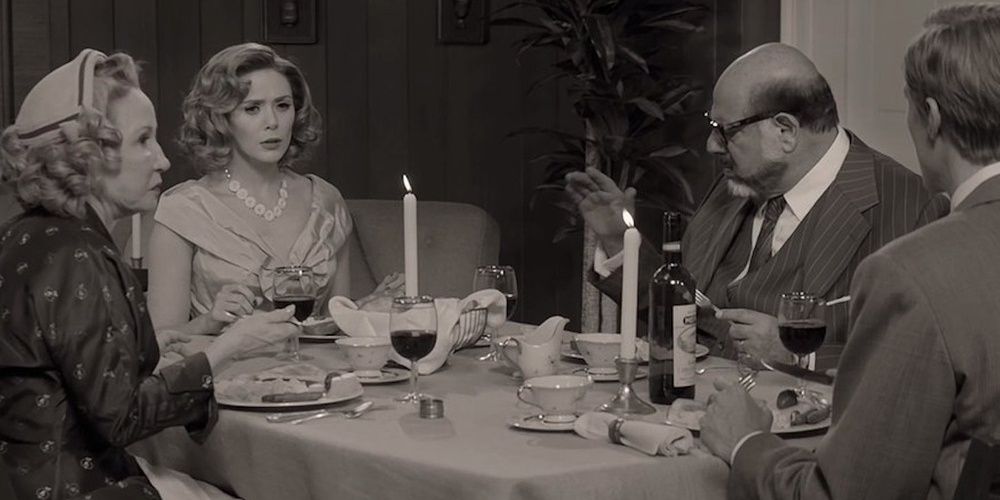
"Previously On..." lays it out for all to see. This entire time, Wanda has been dealing with her grief over the loss of Vision. The creation of Westview didn't necessarily appear to be an intentional act, but rather an outward result of Wanda's overwhelming grief. When it finally overtakes her as she stands in the center of where she and Vision would have built a home together, her magic extends outward, creating a reality where Vision is alive, and everything is actually okay.
Oddly enough, these early stages of WandaVision, with their 50s and 60s sitcom milieu fit within the first stage of grief based on the Kübler-Ross model: denial. The thought of having lost Vision is entirely too much for Wanda to handle, and so she denies that it even happened by creating a new Vision out of her chaos magic. This stage continues through the second episode, when Wanda begins seeing signs of life outside of Westview, but chooses to ignore them.
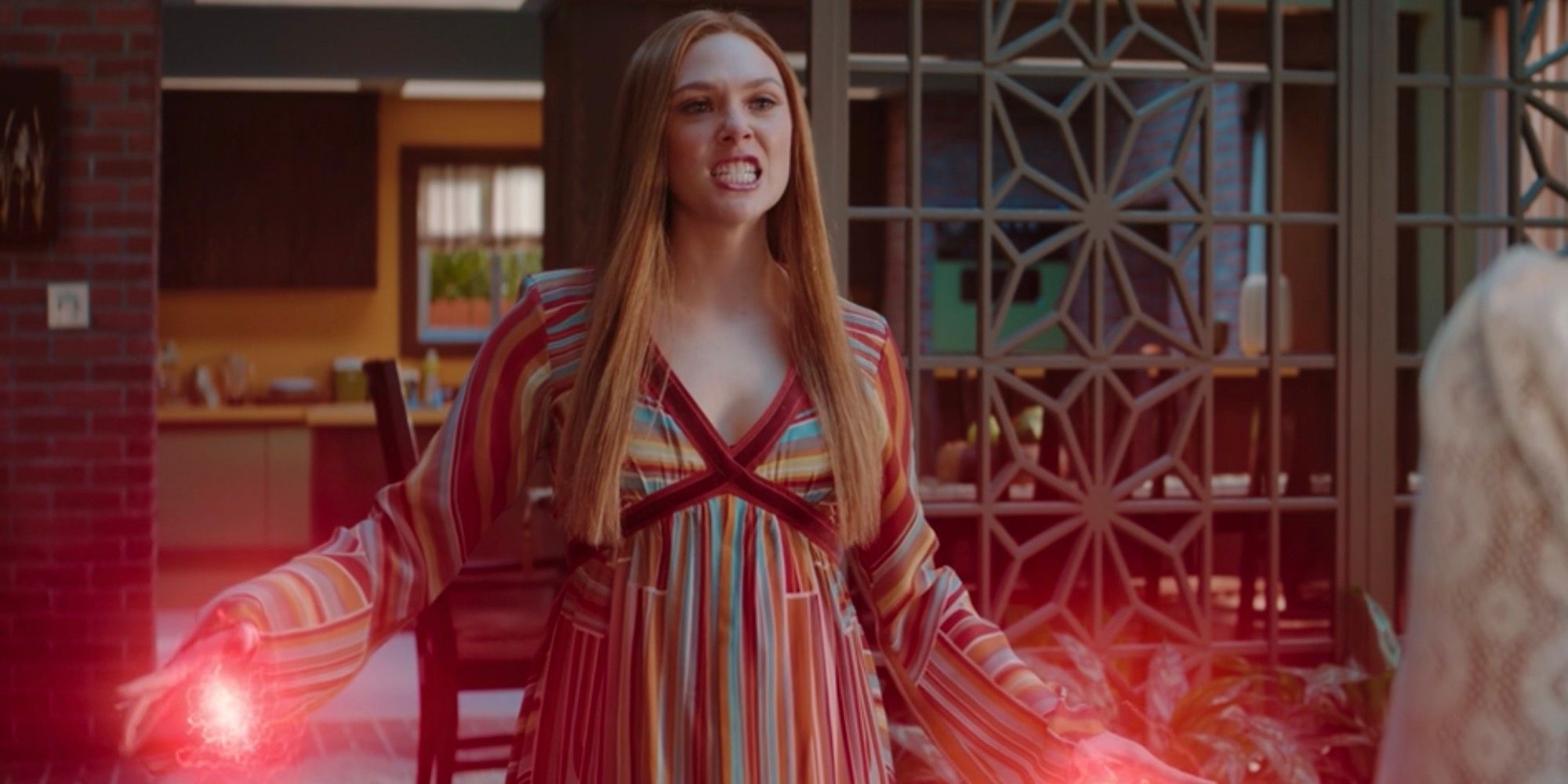
By the third episode, "Now In Color," Wanda appears to be living her ideal life. She and Vision are about to have twins faster than should be humanly possible (although it seems like the leftover denial allows Wanda to just ignore this fact). Most of the episode plays out with its Brady Bunch-esque cheeriness, with only the slightest hints that something is wrong happening outside of the house when Agnes and Herb both seem to suggest that 'Geraldine' shouldn't be there.
Wanda enters the second stage of grief after Geraldine (who is actually Monica Rambeau) mentions her brother Pietro and his death at the hands of Ultron. At this point, all viewers know is that Monica is ejected from the hex. However, in the next episode, viewers see Wanda express her anger at the fact that Monica is intruding on her constructed life, and using her power to send the SWORD agent flying through four walls until she is expelled from the hex entirely.
This was the most furious that fans had seen Wanda be on the show up to this point, and it perfectly contrasted the tone of the rest of the show. Getting lost in her anger also seemed to be what sparked Wanda seeing the dead Vision when he re-enters the house.
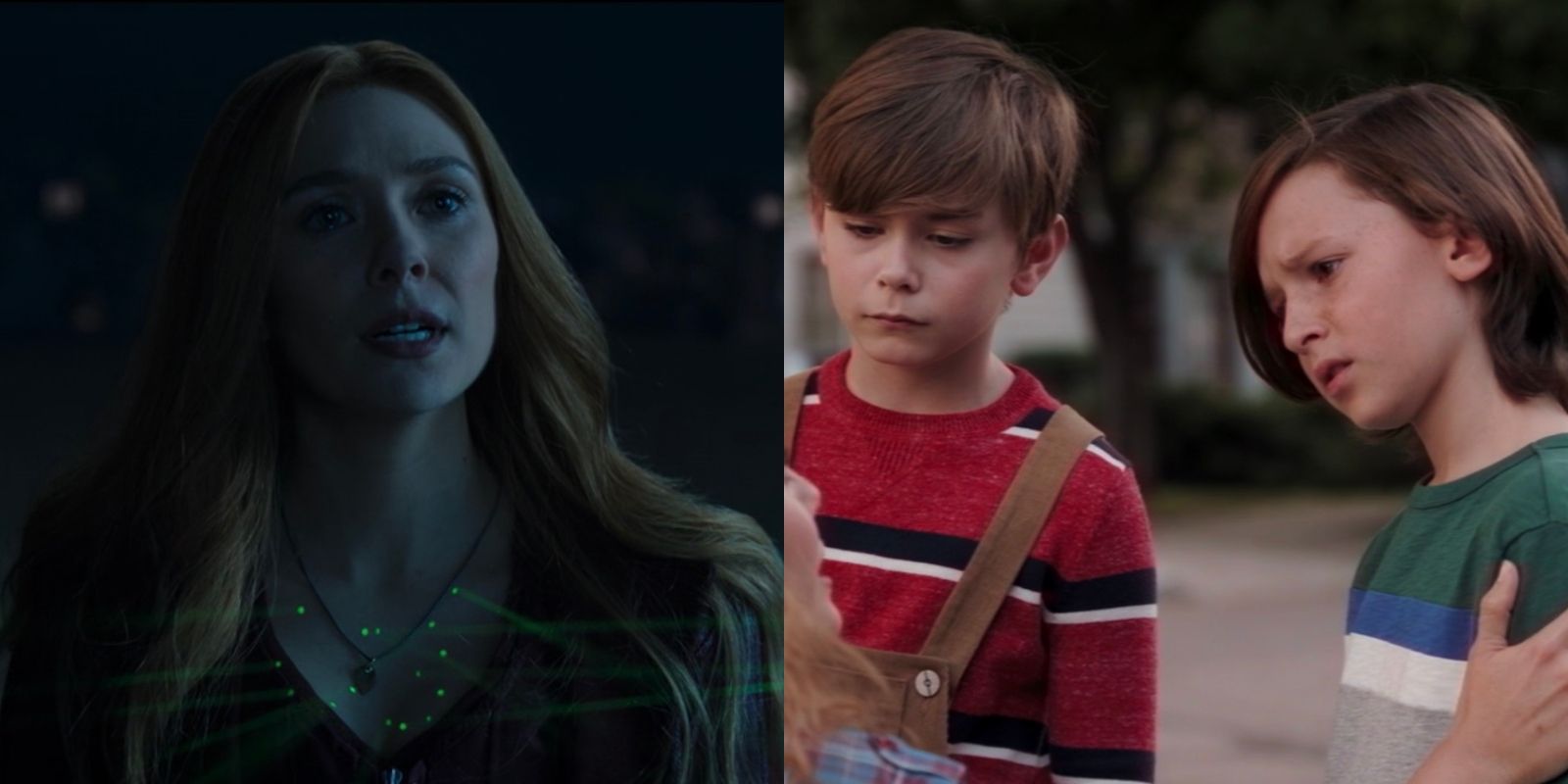
After episode four gave viewers a break from Westview to give a fuller picture of what was happening outside of the boundary, WandaVision returns to sitcom territory in "On A Very Special Episode...". Wanda and Vision's twins grow exponentially fast in this episode, and eventually have to deal with death themselves when their dog Sparky dies (thanks a lot for that, Agatha).
One scene, in particular, embodies the theme of bargaining, and that is when Wanda leaves the hex for the first time. She is essentially making a deal with the SWORD agents: leave her alone and no one gets hurt. The subtext of the scene is that Wanda knows her constructed world is not real, but she would rather shut herself off from the real world entirely than lose Vision again.
There are other moments of bargaining in the episode, such as when Wanda decides that she wants to stop hiding her powers. "I'm tired of hiding Vis, and maybe you don't have to either." Later, when the aforementioned Sparky is found dead after supposedly eating a poisonous plant, Tommy and Billy both try to bargain with Wanda, to get her to bring the dog back to life, or to age themselves further so that they don't hurt as much.
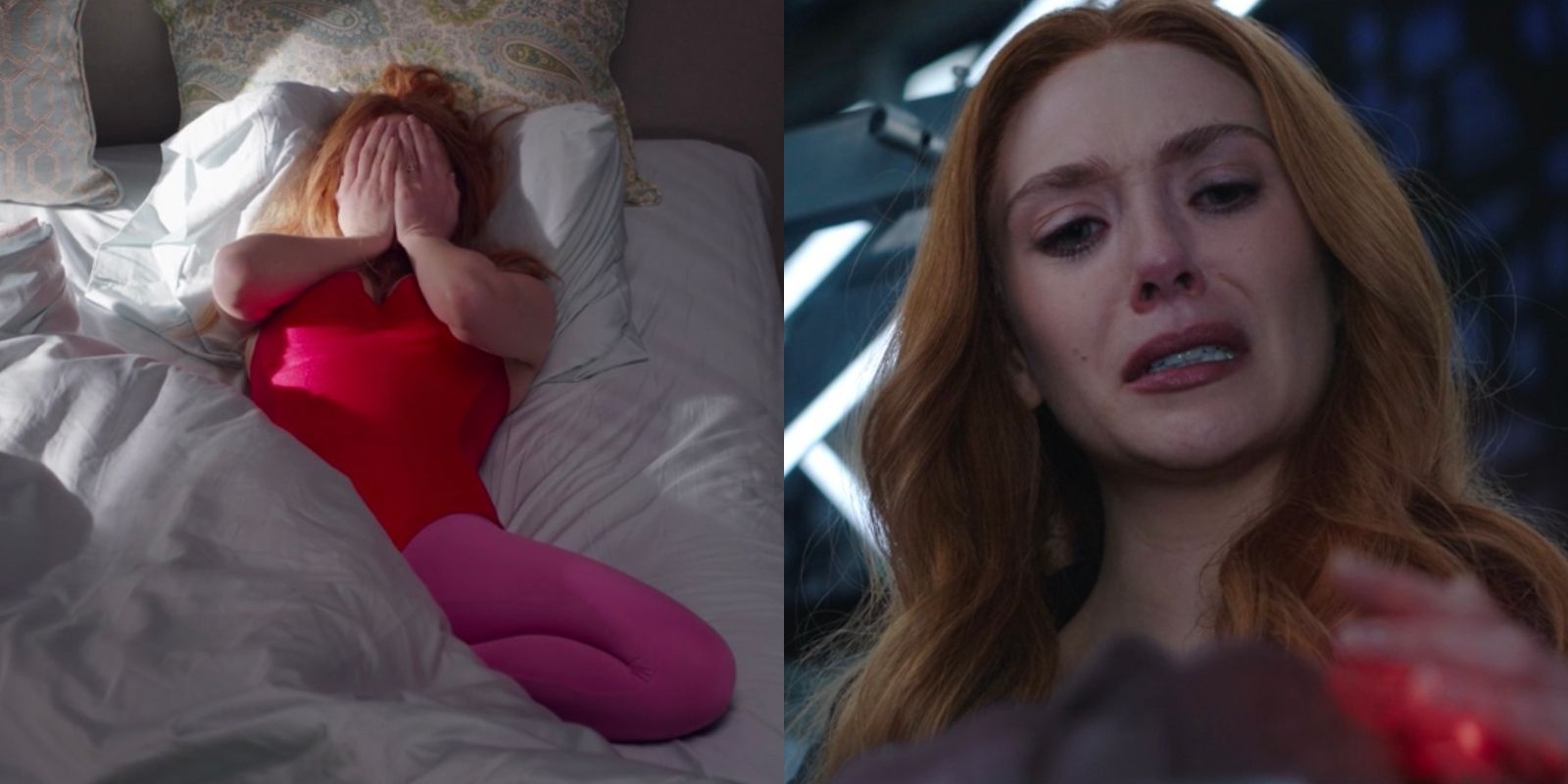
Both episode 7 and episode 8 of WandaVision find Wanda in a state of depression. "Breaking the Fourth Wall" sees her needing to be alone to deal with her feelings. While this doesn't necessarily signify a deep state of depression, it does show that maybe Wanda is getting disillusioned by the world within Westview. She even seems to be losing control of her surroundings, suggesting that depression is affecting her powers.
However, all of this really comes to the forefront in the latest episode, "Previously On...". Viewers finally get a glimpse at Wanda's past, which reveals that she may have lost more than almost any other Avenger. On top of losing her parents at a young age, she also lost her brother, and then the love of her life. One of the worst parts of losing Vision was that Wanda was denied closure by Sword director Hayward, who refused to let Wanda give Vision a proper burial. This gesture may have helped Wanda to process her loss more easily. Obviously, though, Hayward had other plans for Vision's remains, as signified by the post-credits scenes.
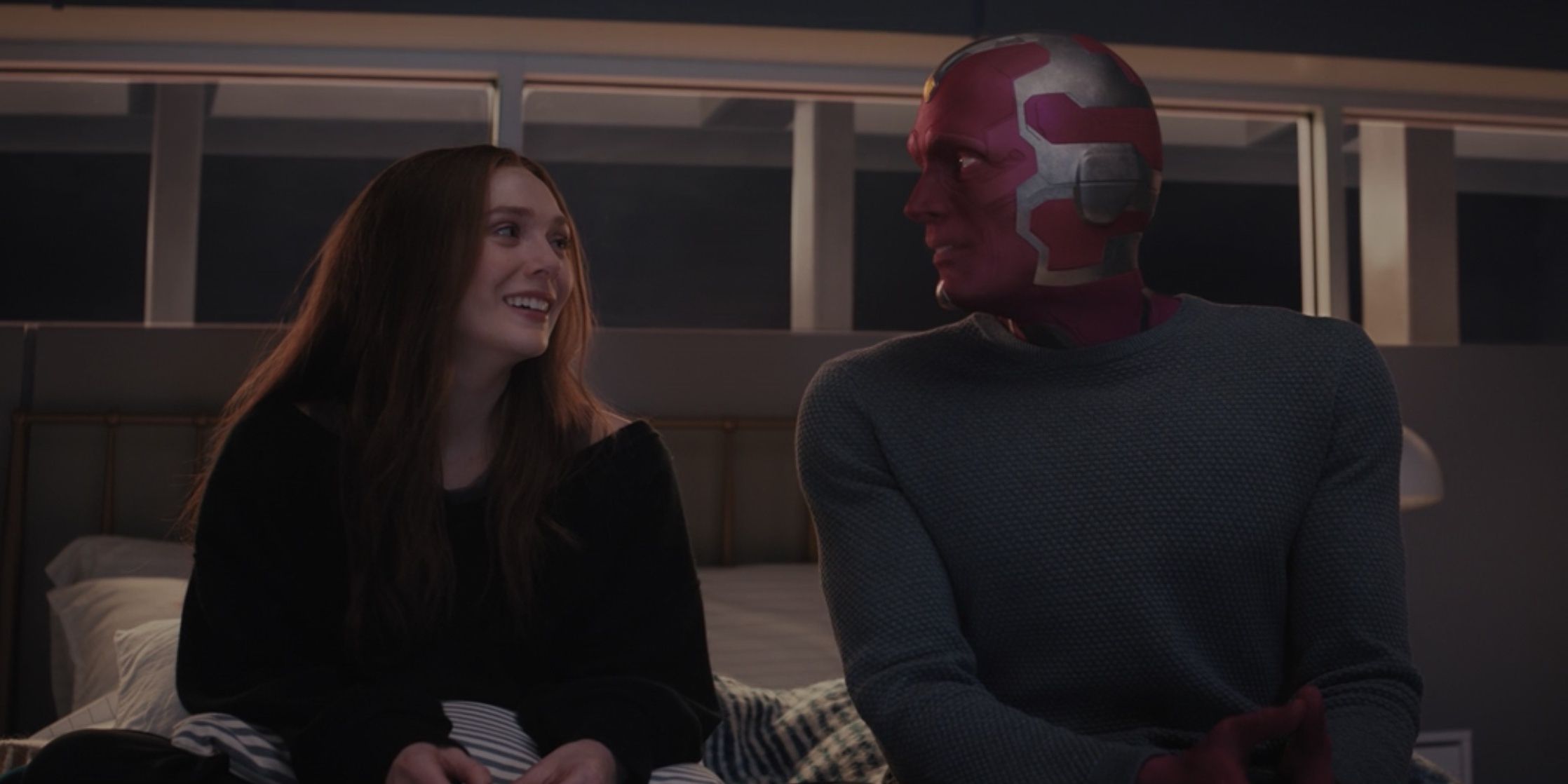
While it's hard to tell if Wanda will reach the stage of having to accept Vision's death and find a way to move on, it does seem to be the logical endpoint for this story. While Agatha and Wanda are traveling through the latter's past, they come across an early conversation between Wanda and Vision at the Avengers compound. When Wanda tells Vision that the pain she feels over the loss of Pietro is overwhelming, he poses the question, "it can't all be sorrow, can it?"
In a truly moving moment, which is really a testament to how well-written WandaVision has been, Vision takes a logical look at loss and grieving, and though he has never felt it himself, he asks, "what is grief but love persevering?" In a roundabout way, Vision is telling Wanda that the pain she feels means that she felt love, and that's far better than never feeling anything at all.
WandaVision only has one episode left, and what happens in those final minutes is anyone's guess. However, if the show really is about grief, fans may have to deal with shedding a few tears over the permanent loss of Vision.

